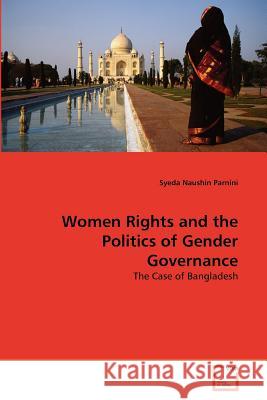Women Rights and the Politics of Gender Governance » książka
Women Rights and the Politics of Gender Governance
ISBN-13: 9783639368734 / Angielski / Miękka / 2011 / 180 str.
International organizations have increasingly used the issues of human rights in their policy and practice since the late 1990s. In the contemporary world feminist perspectives on the politics of rights have explored the strategies, tensions and challenges associated with 'rights advocacy' in various settings. Several articles on South Asia explore the dilemmas that arise from feminist praxis in the diverse location, and address the question of what rights can contribute to struggles for gender justice. This study seeks to provide an understanding of the political and social factors as well as identification of the capacity of human rights regime to develop an effective response to the gender governance crisis. It is a gender perspective on human rights that is women rights within the non-traditional issues with specific implications for women in the context of Bangladesh. This work examines the intersection of formal rights with the everyday realities of women in settings characterized by gender inequalities and poverty, plural legal systems and diverse cultural norms that can constitute formidable obstacles to realizing women rights and gender governance in Bangladesh.
International organizations have increasingly used the issues of human rights in their policy and practice since the late 1990s. In the contemporary world feminist perspectives on the politics of rights have explored the strategies, tensions and challenges associated with rights advocacy in various settings. Several articles on South Asia explore the dilemmas that arise from feminist praxis in the diverse location, and address the question of what rights can contribute to struggles for gender justice. This study seeks to provide an understanding of the political and social factors as well as identification of the capacity of human rights regime to develop an effective response to the gender governance crisis. It is a gender perspective on human rights that is women rights within the non-traditional issues with specific implications for women in the context of Bangladesh. This work examines the intersection of formal rights with the everyday realities of women in settings characterized by gender inequalities and poverty, plural legal systems and diverse cultural norms that can constitute formidable obstacles to realizing women rights and gender governance in Bangladesh.











